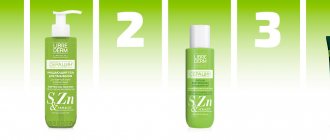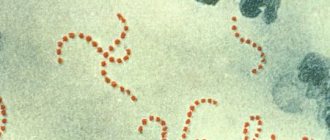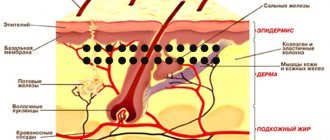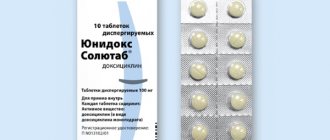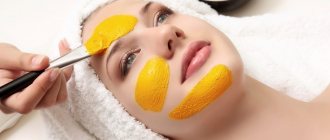What tests are done for acne and pimples?
The problem of acne, which is also known as acne, has always been quite widespread.
Residents of megacities are especially susceptible to acne, because stress, polluted air, poor diet and impaired immunity are often prerequisites for the development of acne and acne. The reasons for the development of the disease also include genetic predisposition and hormonal imbalances. That is why teenagers are frequent patients of cosmetology clinics diagnosed with acne. Be that as it may, acne needs to be dealt with. Alas, it is almost impossible to do this yourself - this will lead to a deterioration in the condition of the skin. To effectively overcome the problem, an integrated approach is required. And his first step should be a good diagnosis. An experienced cosmetologist can conduct an examination and immediately prescribe treatment, or send the patient to undergo a series of tests to identify the true cause of skin problems. For severe or chronic symptoms of the disease, this is necessary. For example, quite often, if there is a suspicion of an imbalance in the body’s functioning, a specialist requires tests for hormones. This will make it possible to cure acne and prevent future relapses.
What tests are done for acne and pimples? First of all, it is necessary to understand that each patient is unique, which makes the list of possible tests very diverse. Often, based on the results of a universal biochemical blood test, the causes of acne can be identified. Its results make it possible to assess the state of the functioning of organs that are closely related to the quality of the skin - the liver, kidneys, and pancreas. Also, such a study gives a picture of the level of metabolism.
Bacteriological research
The essence of this method is to take biological material from damaged skin and study it in the laboratory in order to determine the forms and types of microorganisms present there. For examination, a smear can be taken from the skin of the affected area (the doctor runs a sterile swab over the skin several times), as well as fluid secreted from pustules or pustules. Blood is usually not taken for testing, since with acne bacteremia (the presence of bacteria in the blood) is almost never observed. The resulting material is sent to the laboratory, where it is inoculated on various nutrient media. After a few days, colonies of various microorganisms grow on the media, which makes it possible to determine their type, as well as determine sensitivity to antibacterial drugs.
Common myths about acne
Given the high prevalence of acne, it is not surprising that it is surrounded by numerous myths. Many of them concern reasons. Here is a list of factors that, contrary to popular belief, do NOT cause acne:
- Fatty food. The fats you eat don't go straight to your sebaceous glands. Only constant direct contact with the skin matters.
- Hygiene. If they tell you that you have acne because you don't wash your face well, don't listen. On the contrary, the problem is aggravated by washing the skin too often with soap and other products.
- Cosmetics. If it is not oily, it will not cause the pores on the skin to “stop breathing” and will not turn into acne.
And the most dangerous myth: “Acne does not need to be treated. In general, it is better not to touch the skin. This is a natural process, everything will work itself out when the time comes.” You should not follow such a philosophy for at least three reasons:
- Without treatment, large acne leaves unsightly scars on the skin.
- If acne spoils your appearance, this can lead to numerous psychological complexes, including clinical depression. Naturally, this will affect all areas of life.
- After all, there are effective treatments. You just need to find free time to visit a dermatocosmetologist.
Determining the level of follicle-stimulating hormone (FSH)
FSH is a hormone from the pituitary gland (a gland that regulates the activity of all other glands in the body), which increases the concentration of testosterone in the blood, thereby stimulating the process of formation of sperm (male reproductive cells) in men. In women, normal FSH levels range from 1.2 to 21 mU/liter (international units of action in 1 liter), which depends on the phase of the menstrual cycle. In men, the concentration of this hormone in the blood is relatively constant – 1.37 – 13.5 mU/liter.
Acne skin analysis
It is advisable to undergo skin tests for acne before starting treatment. The simplest test for acne, which is often the starting point, is a microscopic examination of a skin scraping performed by a dermatologist.
It allows you to identify the presence of demodex - a subcutaneous mite, after which appropriate adjustments are made to the treatment program. However, this cause of acne is far from the most common. If the analysis of the scraping reveals any other disorders of the skin microflora, then treatment should be concentrated in this direction (in the absence of other indications).
As part of the analysis of skin microflora in the treatment of pimples and acne, it is possible to conduct a test for the antibiotic sensitivity of pathogenic flora. This is done if previously prescribed antibiotic therapy is ineffective. Fortunately, it is extremely rare to resort to this analysis, since today the dermatologist’s arsenal includes drugs to which Propionibacterium acnes is extremely sensitive. It is much more advisable to empirically use highly effective tetracycline antibiotics for moderate and severe acne, which allows you to halve the number of inflammatory rashes in 6 weeks, than to wait a long time for the results of an analysis of skin microflora culture and only then proceed to choosing an antibiotic to get rid of acne.
Study of intestinal microflora
Under normal conditions, in the large intestine of any person there are certain types of microorganisms that take part in the processes of processing intestinal contents, and also prevent the development of other pathogenic microbes. With the development of dysbiosis (that is, when “normal” intestinal microorganisms die, and their place is taken by pathogenic infectious agents, which can occur with long-term use of antibacterial drugs), a disturbance in the digestive process may occur. Dysbacteriosis can also cause increased activity of the immune system, which in total can contribute to the development of acne.
Visit to a dermatologist: what tests to take with you
People suffering from acne and other skin problems know better than anyone about the “price” of such a disease. A lot of care products, medications and wasted time, which in the context of self-medication often turn out to be useless. While treatment by a dermatologist is ultimately cheaper, faster and more effective. So what tests can a doctor ask for to begin informed therapy?
It is no secret that acne, along with dry skin and atopy, is widespread in the population. The problem has no age or gender differences and is common to both adolescents and the adult population. And in some, albeit rare, cases it even affects children.
The appearance of acne can be associated with an imbalance of sex hormones, such as during puberty, and with many other reasons. Therefore, the diagnostic search begins from the most common to the rarest causes.
1. Hormones
Androgens (testosterone, dihydroepiandrosterone sulfate, androstenediol glucuronide) are known to increase the production of sebum, which is a nutrient substrate for many bacteria. And if the sebaceous gland is also clogged, it is actually a “resort” for microorganisms, especially such as staphylococcus.
Hydroxyprogesterone and cortisol (stress hormone) can lead to the same consequences due to their complex metabolism and interconversions. Therefore, acne often appears in women shortly before the start of the cycle, as well as as a result of prolonged or regular stress.
The thyroid gland is no less important for the skin; changes in its hormones provoke not only acne, but also dryness, sagging and early aging.
However, it is worth noting that normally the lipid mantle of the skin, the special structure of its stratum corneum and the strength of local immunity reliably protect the sebaceous glands from the penetration of pathogens. While the destruction of these structures and the weakening of protective forces open the door to inflammation.
For this reason, hormonal imbalance is most likely the cause not of acne itself, but of changes in the skin that sharply weaken its protective properties.
2.Dysbacteriosis
Modern research convincingly demonstrates the connection between intestinal dysbiosis and many different diseases, including even mental disorders.
“Residing” in the intestines of pathogenic flora dramatically changes the reactivity of the immune system, provoking either excessive activity in relation to habitual factors, or depleting resources and leading to immunodeficiency.
In both cases, the skin suffers more than other organs, since it is the skin that comes into contact with thousands of bacteria and chemicals every second. There are two ways to check how the microflora is:
- “classic” stool analysis for dysbacteriosis
- or assessment of microbiocenosis by blood (according to Osipov).
The first analysis has been used in medicine over the past decades, but cannot characterize the entire picture of the microbiota, since it allows the assessment of only about 50 species of bacteria, and only those living in the lumen of the lower intestine.
The Osipov blood test provides much more diagnostic capabilities; it allows one to evaluate up to 200 types of microorganisms living throughout the intestine, but has not yet received widespread recognition due to some difficulties in interpretation.
Immunity
Immunologists say that immunodeficiency to one degree or another is present today in at least a third of the population. The reason for this is stress, low activity, poor nutrition, and many other modern factors.
Immune problems can manifest themselves as acne or any other chronic inflammatory diseases. You can check your immune status using an appropriate blood test.
Acne treatment at Lilalic center:
Microcurrents
Microcurrent therapy is an effective method to keep your skin youthful and healthy without surgical intervention!
Laser therapy for acne (acne) Acne treatment with the Qanta System laser is a modern and super effective procedure aimed not only at combating inflammation on the skin, but also at treating the consequences of acne
Risk factors
Some people experience little to no acne even in their teens, while others have a lot of acne, it's large and causes a lot of problems. There are some known factors that influence this.
Androgen hormones are primarily to blame Their level increases during puberty, not only in boys, but also in girls. Women experience skin problems due to hormonal changes during pregnancy, taking hormonal contraceptives, and certain endocrine diseases.
People who take testosterone, lithium, or corticosteroids are at increased risk.
Many people have heard that acne is caused by sweet foods: chocolate, cakes, and baked goods. And this has been confirmed in scientific research.
Chronic stress by itself does not cause acne. But it can aggravate the situation if a person already suffers from acne.
Heredity plays a certain role . If parents suffer from acne, most likely, a similar problem will overtake the child in adolescence.
Acne often occurs in people whose skin comes into contact with oily substances: greasy lotions, grease in the kitchen, and some compounds in production. People prone to acne are not recommended to often wear helmets, clothes with a narrow collar, backpacks - in general, any items of clothing and equipment that rub strongly against the skin.
Carrying out hormonal therapy
A sign that a person has an excess of androgens in the body is acne, characterized by:
- the presence of cysts,
- the appearance of nodules,
- the appearance of inflammatory rashes.
Hormonal treatment is indicated for women not only with elevated androgen levels, but with long periods of exacerbation of acne and in cases where the disease is at a late stage. It is also used for patients who are unsuitable or contraindicated for other treatments. Some women choose hormone therapy as contraception. The main goals of hormone therapy are:
- reduction of increased secretion of androgens in the area of the adrenal glands, pituitary gland, ovaries,
- suppress androgen receptors in the sebaceous glands.
Acne experts in Europe recommend using hormonal therapy to treat the condition, along with antibiotics in severe or moderate cases.
Hormone therapy has a high level of effectiveness, and it does not matter whether elevated androgen levels are present or not. This method of treatment can be used either independently or in combination with other methods. It is often used in conjunction with:
- antibiotics,
- benzoyl peroxide,
- azelaic acid,
- retinoids.
In order to see the first positive results after using such therapy, at least three months must pass. Many patients experience improvements sooner. Three groups of drugs can be used in treatment:
- AR blockers,
- oral contraceptives,
- 3 glucocorticosteroids,
- enzyme inhibitors.
All drugs used in treatment have a high level of effectiveness. They have already proven themselves to be the best.
Sign up for a consultation
Make an appointment
Blood test for acne
An important indicator of health in acne is a biochemical blood test. It takes into account the following indicators: bilirubin, glucose, ALT, cholesterol, creatinine, triglycerides, urea, alkaline phosphatase. This blood test can detect a wide range of problems associated with acne, including chronic inflammation, problems with the intestines or liver, and other diseases of the internal organs. If abnormalities are detected in a blood test, it is necessary to consult an appropriate specialist who will work in parallel with a dermatologist, helping to eliminate the true cause of acne.
Thus, careful diagnosis and testing for pimples and acne are the key to successful treatment of acne.
Androgens
Most often, when mentioning cases of acne on the face due to hormonal imbalance, we are talking about hyperandrogenism. Androgens are called male sex hormones or sex steroids. Testosterone (one of the androgens) is present in both male and female bodies. This hormone is responsible for the following134:
- skin density;
- stimulation of collagen synthesis, responsible for skin elasticity;
- accelerating the process of cell renewal;
- activation of sebum production, increasing skin oiliness;
When testosterone levels are high, hair growth occurs on the body and face. The concentration of androgens increases towards the end of the menstrual cycle, so it is on these days that acne may worsen.
Analysis of the endocrine status of patients
It is not necessary to evaluate patients’ hormonal disorders only in two cases:
- acne exacerbation goes away in the shortest possible time,
- Standard treatment methods work for the patient.
Assessment of endocrine status is important and is carried out:
- when the acne problem begins after a person reaches 30 years of age,
- acne cannot be treated with conventional methods,
- acne before puberty,
- acne before menstruation,
- increased levels of the androgen hormone,
- increased testosterone levels,
- obesity,
- location of rashes. If they are located in the chin area, then the reason lies in hormonal disorders.
Hyperandrogenism manifests itself under the influence of the following factors:
- ovarian. The causes of its appearance include: PCOS and ovarian tumors. They can be benign or malignant.
- adrenal. The reasons for the appearance of this factor are: adrenal hyperplasia, which is divided into congenital and acquired, and an adrenal tumor, which can be benign or malignant.
In about 90 percent of cases, PCOS is the cause. It causes a variety of endocrine diseases in women. In this case, cysts may even form. One of the signs that is detected by ultrasound is polycystic ovary syndrome. The disorders are also accompanied by anovulation.
For patients who experience an increase in androgen levels without menstrual irregularities, tests and examinations are carried out in the first half of the menstrual cycle. If another hormonal therapy is already being used, then to determine the new hormonal status, it is important to stop taking oral contraceptives and medications that are used as part of it one month before the tests and procedures. This will eliminate the possibility of false or incorrect results.
The following indicators are taken into account:
- indicators of testosterone levels, which can be total and free.
- androstenedione. Samples taken early in the morning are ideal for analysis.
- DHEA,
- SHBG,
- Prolactin. If it is elevated, the causes may be either hypothalamic or pituitary,
- 17-hydroxyprogesterone,
- Luteinizing hormone
- Insulin. Its level is measured both on an empty stomach and after the patient has eaten.
- Cortisol. If it is elevated, then this is a sign of adrenal neoplasia.
How is a clinical examination performed?
Clinical examination of patients with acne includes an examination during which the doctor examines the condition of the skin, the number of acne lesions on the face and body.
The nature of the examination depends on many factors31:
- age;
- gender;
- family history (examined for evidence of acne history by parents);
- gynecological history (in women);
- duration of acne;
- severity of the disease;
- the effectiveness of previously prescribed therapy;
- general condition of the patient;
- combinations of acne vulgaris* with other dermatoses, etc.
The specialist performs palpation, pressing on the acne elements with a special tool (glass or cotton swab). This allows him to assess the density of formations, the presence of skin pain during touch, and study the fluid released when pressure is applied. In addition, the dermatologist examines the presence of scars.
